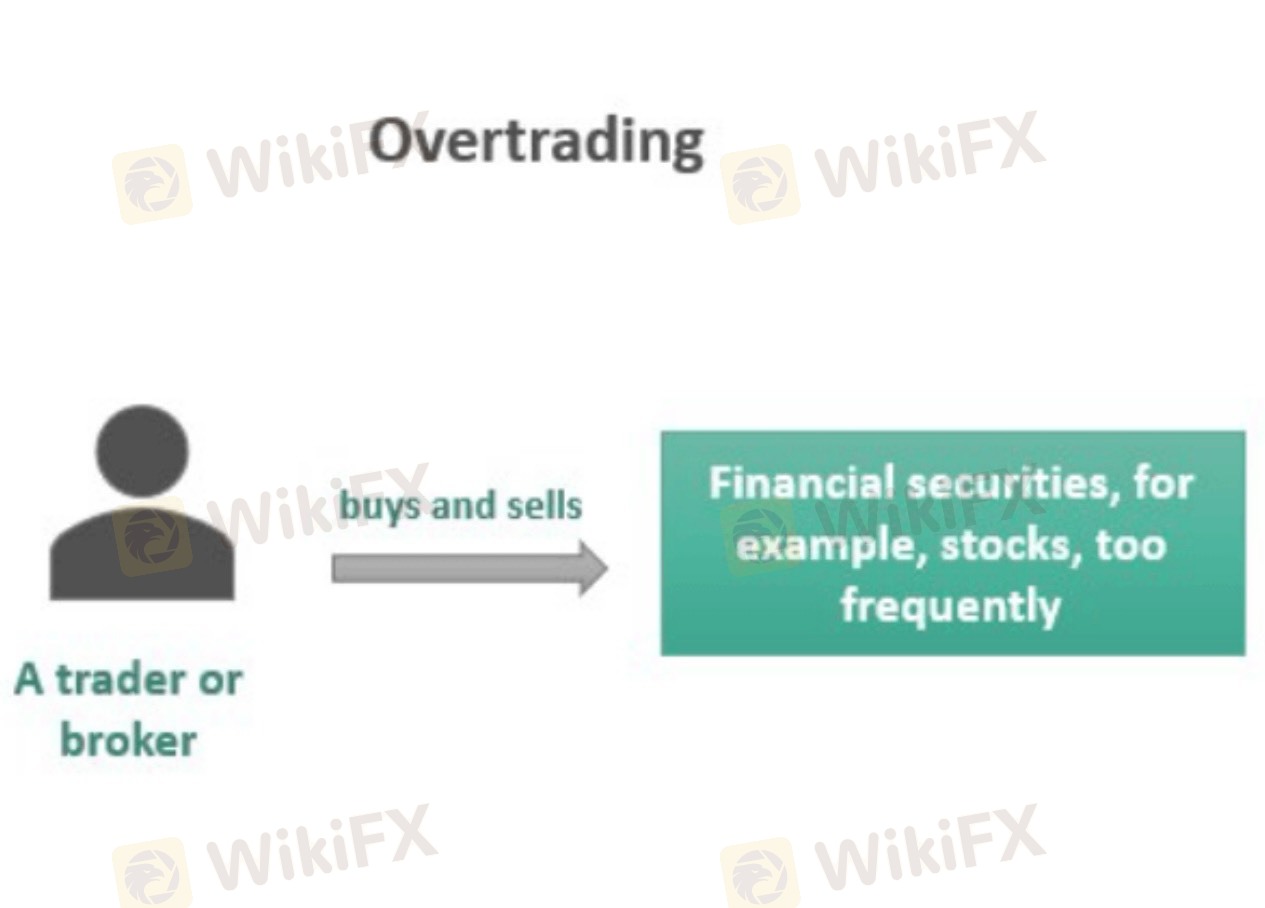
2025-02-17 21:49
IndustriyaOver trading and its risk consequences
#forexrisktip
Overtrading occurs when a trader executes too many trades, often driven by emotional impulses, greed, or the desire to recoup losses. It poses significant risks and can severely impact trading performance. Here’s how:
1. Increased Transaction Costs: Frequent buying and selling lead to higher brokerage fees, commissions, and slippage, which can erode profits over time.
2. Emotional Decision-Making: Overtrading is often linked to emotional impulses, such as fear of missing out (FOMO) or revenge trading after a loss, leading to irrational decisions and poor risk management.
3. Reduced Focus and Discipline: Making too many trades can dilute attention and lead to mistakes, such as misjudging market trends or ignoring stop-loss rules.
4. Higher Exposure to Market Risk: Overtrading increases exposure to market volatility, magnifying the impact of adverse price movements on the portfolio.
5. Diminished Strategy Effectiveness: Deviating from a well-thought-out trading plan due to overtrading can undermine the effectiveness of a strategy and reduce overall profitability.
6. Psychological Stress and Fatigue: Constantly monitoring the markets and making frequent decisions can lead to burnout and impaired judgment, affecting long-term trading performance.
7. Capital Erosion: Rapidly accumulating small losses can significantly deplete trading capital, increasing the risk of margin calls or complete account wipeout.
How to Avoid Overtrading:
• Set Clear Trading Rules: Establish strict criteria for entering and exiting trades and stick to them.
• Limit Trade Frequency: Set a maximum number of trades per day or week to prevent impulsive actions.
• Focus on Quality, Not Quantity: Prioritize high-probability setups rather than chasing every market movement.
• Emotional Management: Practice emotional discipline through mindfulness or journaling to reduce impulsive decisions.
• Periodic Review: Regularly review trading performance and identify patterns of overtrading to adjust behavior.
Would you like help setting up a trading plan, or tips on maintaining emotional discipline while trading?
Katulad 0
Sriniwas
交易商
Mainit na nilalaman
Pagsusuri ng merkado
Dogecoin cheers coinbase listing as Bitcoin’s range play continues
Pagsusuri ng merkado
Grayscale commits to converting GBTC into Bitcoin ETF:
Pagsusuri ng merkado
Bitcoin's price is not the only number going up
Pagsusuri ng merkado
Theta Price Prediction:
Pagsusuri ng merkado
How to Research Stocks:
Pagsusuri ng merkado
Bitcoin (BTC), Ethereum (ETH) Forecast:
Kategorya ng forum

Plataporma

Eksibisyon

Ahente

pangangalap

EA

Industriya

Merkado

talatuntunan
Over trading and its risk consequences
 India | 2025-02-17 21:49
India | 2025-02-17 21:49#forexrisktip
Overtrading occurs when a trader executes too many trades, often driven by emotional impulses, greed, or the desire to recoup losses. It poses significant risks and can severely impact trading performance. Here’s how:
1. Increased Transaction Costs: Frequent buying and selling lead to higher brokerage fees, commissions, and slippage, which can erode profits over time.
2. Emotional Decision-Making: Overtrading is often linked to emotional impulses, such as fear of missing out (FOMO) or revenge trading after a loss, leading to irrational decisions and poor risk management.
3. Reduced Focus and Discipline: Making too many trades can dilute attention and lead to mistakes, such as misjudging market trends or ignoring stop-loss rules.
4. Higher Exposure to Market Risk: Overtrading increases exposure to market volatility, magnifying the impact of adverse price movements on the portfolio.
5. Diminished Strategy Effectiveness: Deviating from a well-thought-out trading plan due to overtrading can undermine the effectiveness of a strategy and reduce overall profitability.
6. Psychological Stress and Fatigue: Constantly monitoring the markets and making frequent decisions can lead to burnout and impaired judgment, affecting long-term trading performance.
7. Capital Erosion: Rapidly accumulating small losses can significantly deplete trading capital, increasing the risk of margin calls or complete account wipeout.
How to Avoid Overtrading:
• Set Clear Trading Rules: Establish strict criteria for entering and exiting trades and stick to them.
• Limit Trade Frequency: Set a maximum number of trades per day or week to prevent impulsive actions.
• Focus on Quality, Not Quantity: Prioritize high-probability setups rather than chasing every market movement.
• Emotional Management: Practice emotional discipline through mindfulness or journaling to reduce impulsive decisions.
• Periodic Review: Regularly review trading performance and identify patterns of overtrading to adjust behavior.
Would you like help setting up a trading plan, or tips on maintaining emotional discipline while trading?
Katulad 0
Gusto kong magkomento din
Ipasa
0Mga komento

Wala pang komento. Gawin ang una.

Ipasa
Wala pang komento. Gawin ang una.